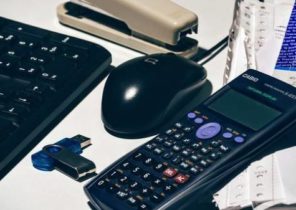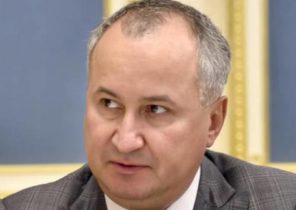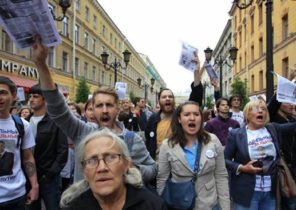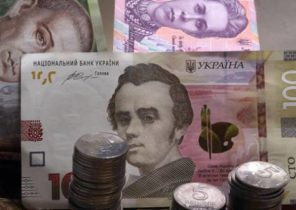On the background of the fight against the spread of coronavirus, the authorities began to actively intervene in the lives of citizens, to borrow the Chinese experience of “digital surveillance”. The turnover of government surveillance even got that information, which until now was considered confidential and which could be obtained only by court order.
The trend could lead to the establishment of the system of “bio-COP” control, which will continue after the curve of incidence will decline, convinced the interviewed experts.
How the authorities monitor citizens
Shortly before the beginning of the epidemic in Russia the Moscow authorities have set on the streets of 105 thousand surveillance cameras with facial recognition system (according to others — 178 thousand). It was assumed that this will allow to catch criminals, since the system determines caught on camera citizens and compares them with law enforcement databases.
Promotion of technology at the state level began in 2014 when the then Prime Minister Dmitry Medvedev created a special Commission on the introduction of hardware-software complex “Safe city” with “smart” surveillance. Since then, similar systems have been launched in several major cities.
With the spread of the coronavirus such systems were a new application. The authorities of Moscow, for example, have begun to monitor those who return from abroad was forbidden to leave the house.
Before may holidays, Regardie announced the application in Moscow and the Moscow region drones with cameras to identify clusters of people in the forest areas (they closed). Initially, resguardar had intended to use drones to monitor protesters.
For surveillance use and location data of mobile phones. Before the security forces got access to them only by decision of a court for criminals.
The first under state control, in addition to those who have returned from abroad, were patients with confirmed coronavirus and people from their circle of friends. Doctors send their isolation at home or placed in a hospital, offering to sign the paper, which contains an item on the consent to the processing, storage and transmission of personal data by both public and private organizations, says the lawyer of the international human rights group “Agora” Stanislav Seleznev.
“It [the agreement] entered… in very small print where nobody reads (and with no mention of expiration date)… none of the legislation related to the surveillance, if they are published, there is no evidence that the data collected have a limited shelf life,” says the lawyer.
Surveillance is not insured and those who did not sign any papers. Taken at the end of March amendments to the Code of the city of Moscow on administrative offences allowed to identify and fine the residents facing the street despite the ban, using video surveillance and geolocation.
Some Muscovites began to receive text messages from the emergency call to return home, regardless of whether they agreed to the processing of personal data.
The capital experience is replicated in other regions, for example, in St. Petersburg, Sakhalin, Surgut. The ambiguity in the questions about who, under what conditions and for what period of time have access to confidential information where it is stored and whether destroyed, causing concern among human rights activists.
Leakage of personal data, which then resell the fraudsters are not uncommon in practice. So, the black market dealers at the end of 2019 got access to the cameras a “Safe city” in Moscow, the investigation showed “MBKH-media”. Criminals repeatedly kidnapped and information about the clients of Sberbank.
“No reason to assume that the information that was collected in the framework of the fight against the spread of coronavirus, to be otherwise, we do not have”, — says Seleznev.
The expert urges the authorities to heed the recommendations of international organizations Access Now calling on governments to respect privacy in the context of the pandemic.
In particular, he says, it is necessary to use the software with open code that allows any specialist in the field of computer data to check how the app works, what information gets where it reports what channels use.
“The collection of information, its storage and use must carry to term (time-limited) character. The possibility of access [to the representatives] respected public organizations specializing on protection of personal data… to control its destruction in the day when the quarantine will end,” said the lawyer.
What will become a medical mystery
Own base of data on patients with coronavirus and their circle of contacts collects the MoH. In it enter the passport data of the diseased and those with whom they communicate, information about their place of residence, foreign travel, diagnoses (including comorbidities such as HIV and tuberculosis).
Data from the can enjoy health authorities, Rospotrebnadzor, Ministry of interior, some other structures and any other organization by the decision of the operational headquarters for the fight against the epidemic.
Base now makes it technically possible to introduce a system of “immune passports” — evidence that the person had covid-19 and developed resistance to infections, said the Minister of health of Michael Murashko, adding that it is unclear whether such a measure.
This idea is discussed in European countries (Germany, Italy). Its supporters believe that the certificates will facilitate the state’s return to normal life: survivor will be released from quarantine before the rest, which will help to restart the economy. However, the world health organization did not support the initiative because there is no evidence that ill covid-19 protected from re-infection.
Critics believe that the immune passport will split the society into “free” and “prisoners,” will lead to a black market of fake certificates and diskriminerad those who have such documents do not exist.
“Employers or governments may require that only people with certificates of immunity can work in areas with significant human contact… But is it worth their limit?” raises the question the Director of the program in neuroscience and society Stanford University Henry Greely in his article in the American edition of Stat.
Some experts dispute the need for such emergency measures, believing that the proposed authorities of a “cure” can be worse than the disease.
“There are two thousand strains only influenza. In the usual epidemic season of ARVI ill 120 thousand people a day, and today we have 9-11 thousand a day [identified cases of coronavirus, according to official figures]. And that on each such occasion will be the passport issue? It’s crazy and absurd,” — said the President of the League of defenders of patients Alexander Saversky.
Others believe that the danger level is partly justified extraordinary measures, but fear that the authorities will take advantage of the situation to turn a temporary intervention into a permanent.
Data on health status of Russians to be medical mystery. However, in some cases, the law allows you to pass this information to the authorities without the consent of the citizen, including with the threat of the spread of infectious diseases and mass poisonings.
Russia has repeatedly tried to limit the scope of medical confidentiality, placing some patients under enhanced supervision. But these attempts mostly have been unsuccessful.
Thus, the interior Ministry urged physicians to disclose to the security forces information about patients with mental disorders. In 2019, the state Duma rejected a bill requiring people with HIV to register in specialized clinics. Earlier, a similar idea was made by the Ministry of health (later the Ministry admitted its contradictory).
Opponents of the project referred to the fact that it goes against the right of a citizen to an anonymous survey, and therefore increases the risk of adverse publicity and harassment, wrote “the Newspaper.ru” with reference to specialists.
However, against the background of the epidemic, the authorities will revise their attitude to the privacy of biomedical information, experts believe.
What will happen after the coronavirus
Not all measures of supervision, introduced to combat the epidemic will disappear once the curve of incidence will decline, says the sociologist Gregory Yudin, associate Professor, faculty of social science.
“We are beginning to live in a world where the risk of [major] epidemiological phenomenon is dramatically increased, regardless of how fast the story coronavirus… there will be new surveillance practices, for example, control of the immune status (especially if you find that people may have a genetic predisposition to the virus). We get entrenched infrastructure at the intersection of security, health and policing. How would it work, what can be mobilized, and whether opportunities for abuse, we don’t know yet”, says the scientist.
“Accept for the last time legislation… focuses not on the compliance with the UN recommendations on the observance of human rights in the digital space, but rather to the Chinese model, which gives all rights to control and use the data on the person to governmental agencies. As for the biometric passports, it is quite possible… as one of the elements of a digital profile of a citizen, allowing you to reward him for his welcome by the authorities the behavior and limit for blamed,” — said Stanislav Seleznev.
We are talking about the current China’s system of social ranking, in which the government collects and handles a wide range of information about citizens, from conflicts with authorities and other manifestations of “disobedience” to the buying habits and accuracy of payments on loans. While “trustworthy” to get benefits, and “unreliable” are subjected to punishments.
Russian official circles, apparently with interest, looking at the Chinese experience and, it seems, are willing to borrow. State news Agency RIA “Novosti” wrote that the social ranking of “hate Western liberals,” whereas the Chinese supposedly evaluate it very highly.
Officials from Moscow and Tatarstan Republic visited China, studying the experience of “smart” video surveillance and other police technology.
In may 2020, the state Duma approved the second reading of the bill on the unified Federal register of information about the population. While it is going to make passport data, information on marital status, residency, education level and migration status, voennoobyazannyj, register with social services and the like.
“The benefits of the control systems society during the epidemic became apparent… [and] in the future this can become an argument in favor of developing such systems and beyond,” write the experts of the Moscow Carnegie center, adding that “autocratic know-how” have become one of the articles of Russian imports from China.
“In this case, we come to the creation of a universal digital citizen profile, which, regardless of its wishes, will be recorded all of his actual life,” — said Seleznev.
Ivan Alexandrov is the pseudonym of a Russian journalist.







